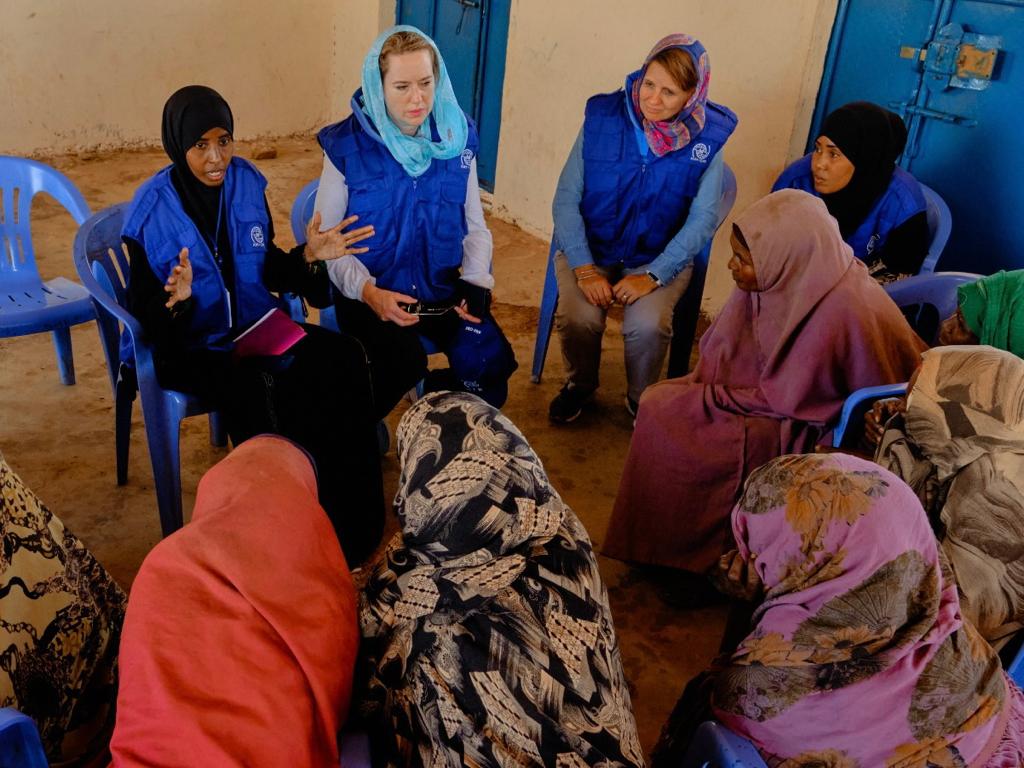Mogadishu - The crisis in Somalia is deepening. With a fifth failed rainy season imminent, humanitarian actors require greater resources to help communities in need survive, rebuild and foster resilience.
"Time is running out for Somalia," said the International Organization for Migration's (IOM) Deputy Director General Amy Pope, following a four-day visit to Mogadishu and Baidoa.
Rural communities in Somalia are facing the dire consequences of a climate emergency as they grapple with decades of instability, disease and economic crises. Without a rapid increase in assistance, Somalia Food Security and Nutrition analysis projects that famine will be a reality in parts of the country by October.
"The situation in Somalia demands the world's urgent attention, solidarity and support. The communities I met are being devastated by climatic change, despite Somalia being one of the least contributors to global emissions. Millions do not have sufficient water or food. Hundreds of thousands of people could die," she added.
The last famine in Somalia was declared just over ten years ago in 2011 and led to the death of an estimated 250,000 people. The current drought has already claimed the lives of at least 730 children, but the true figure could be much higher, as 7.8 million people are facing extreme food shortages.
With the Federal Government of Somalia and partners, IOM teams are working against the clock to reach the most vulnerable, including rural community members, internally displaced persons and migrants. Weather patterns are becoming more unpredictable each year. The Organization carries out long-term programming to build the resilience of displaced and rural families against future climate-related disasters.

"In Baidoa, I met with displaced women. As droughts became lengthier and more frequent, their land was no longer able to provide. Soon their stockpiles of food for themselves and their animals ran out, as prices in the markets surged. With no option but to abandon their farms, most walked for days by foot under the hot sun. One young mother I met in the displacement site was struggling to feed her six-month-old baby while other women told me that had experienced a mother's worst fear, losing their child," said Deputy Director General Pope.
The drought has forced over one million people to leave their homes in search of water, food and humanitarian services. Bearing the brunt of the crisis, over 80 per cent of the displaced are women, children and the elderly. Most people have settled in towns and cities where support services are already greatly overstretched, and sanitation is poor.
Camp management is one of the most underfunded sectors, which means that displaced people do not have information on how to access or request life-saving assistance. The young, displaced mother that the Deputy Director General spoke with was not aware, until she met the IOM camp management team, that she could access free medical attention and nutritional support for her child.
"Without sufficient funding, millions of people in Somalia will be left to suffer the fallout of devastating hunger, disease and displacement. The impact of this crisis will be felt by generations to come," concluded Deputy Director General Pope.
Donors have been generously supporting response efforts, but funding remains far below that of 2017 when the humanitarian community averted famine through a quick scale up of assistance facilitated by increased international aid. IOM has reached over 700,000 people since the start of the year, but needs are mounting and many more need urgent support. IOM still requires over USD 50 million to fulfil our goal of reaching 2.5 million people affected by the drought by the end of 2023.
IOM has been in Somalia since 2006 and is committed to providing life-saving assistance.
But we can't do this alone - help us help more.






